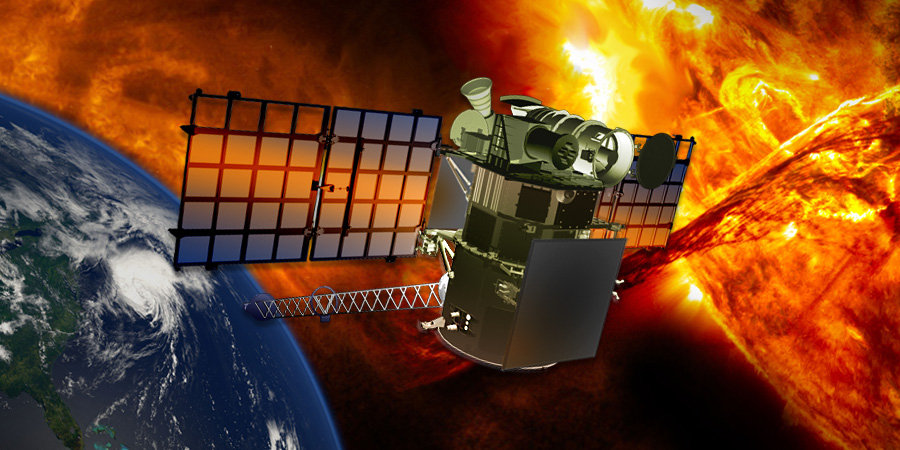Welcome back DSCOVR!
Monday, 2 March 2020 20:39 UTC

Some great news to kick of the new month with! NOAA's Deep Space Climate Observatory (DSCOVR) satellite is fully operational again!
On 27 June 2019, DSCOVR was placed into a “safe hold” due to problems with the satellite’s attitude control system. This “safe hold” mode meant that DSCOVR was not sending any scientific data back to Earth anymore. NASA and NOAA engineers worked hard over the past 9 months to develop a software patch to restore DSCOVR's operations which were successfully implemented according to NOAA officials.
The Deep Space Climate Observatory (DSCOVR) satellite is of vital importance for everyone with an interest in space weather as it is the primary source of real time solar wind and interplanetary magnetic field data. This data is vital to predict the geomagnetic and auroral activity on our planet. DSCOVR is located at the Sun-Earth L1 point which means it always sits between the Sun and Earth, alerting us of the incoming solar wind and its properties.
The past few months we had to rely on the data from the aging Advanced Composition Explorer (ACE) satellite which is 22 years old. We were lucky that ACE still functions and could be used as a backup during the past 9 months but its great to have DSCOVR back which should bring us more accurate data with fewer errors. Welcome back DSCOVR and congratulations to the entire DSCOVR team for bringing DSCOVR back online!
Thank you for reading this article! Did you have any trouble with the technical terms used in this article? Our help section is the place to be where you can find in-depth articles, a FAQ and a list with common abbreviations. Still puzzled? Just post on our forum where we will help you the best we can!
Latest news
Latest forum messages
Support SpaceWeatherLive.com!
A lot of people come to SpaceWeatherLive to follow the Solar activity or if there is a chance to see the aurora, but with more traffic comes higher costs to keep the servers online. If you like SpaceWeatherLive and want to support the project you can choose a subscription for an ad-free site or consider a donation. With your help we can keep SpaceWeatherLive online!
Space weather facts
| Last X-flare | 2025/06/19 | X1.9 |
| Last M-flare | 2025/10/03 | M1.2 |
| Last geomagnetic storm | 2025/10/03 | Kp5 (G1) |
| Spotless days | |
|---|---|
| Last spotless day | 2022/06/08 |
| Monthly mean Sunspot Number | |
|---|---|
| September 2025 | 129.8 -3.7 |
| October 2025 | 140.1 +10.3 |
| Last 30 days | 131.3 -1.2 |





